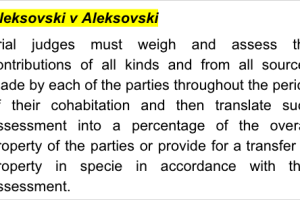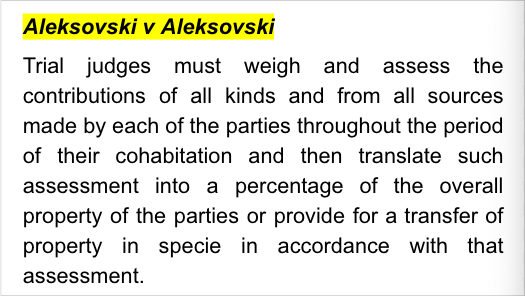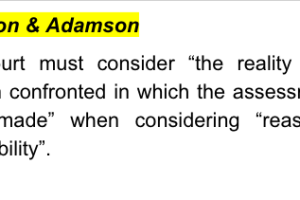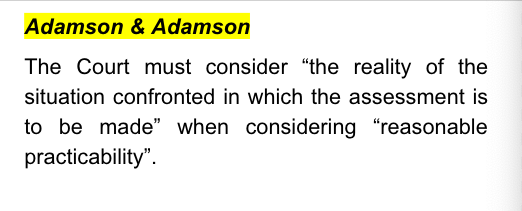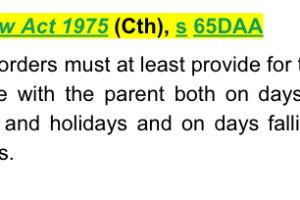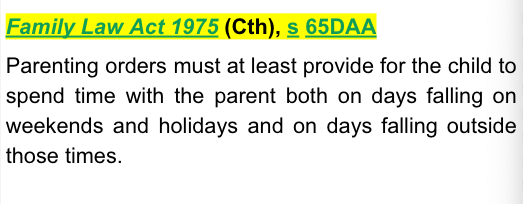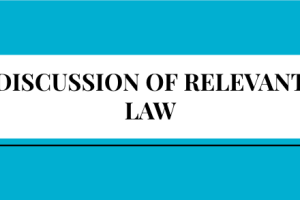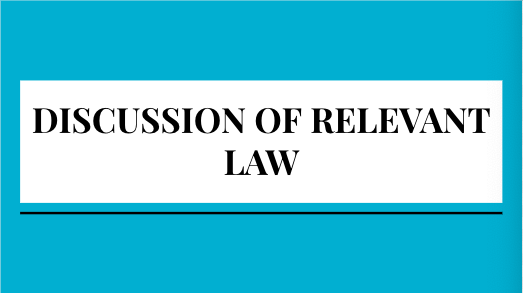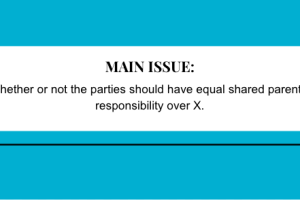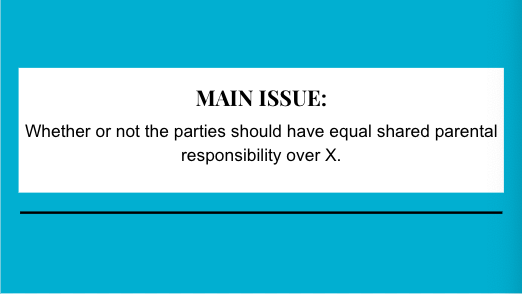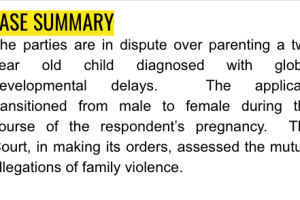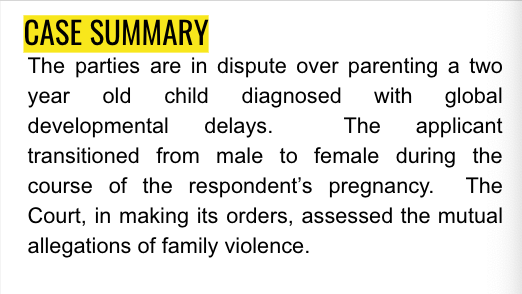- · 4760 friends
Parties Dispute Parenting Orders

Neaves & Neaves [2022] FedCFamC2F 1576 (17 November 2022)
The parties are in dispute over parenting a two year old child diagnosed with global developmental delays. The applicant transitioned from male to female during the course of the respondent’s pregnancy. The Court, in making its orders, assessed the mutual allegations of family violence.

Facts
The parties were in a relationship for about eight years and separated just before X was born. They are unable to agree when and how his time with the applicant should progress to overnight time, or as to parental responsibility.
The parties are also in dispute as to the amount of the applicant’s superannuation which should be received by the respondent, and whether the applicant should pay spousal maintenance to the respondent. There are no significant assets other than superannuation to be divided between them.
The applicant, Ms Neaves, was born in 1981 and is aged 41. She has suffered from depression and anxiety and has previously sought psychological treatment. She says that she is currently managing her depression and anxiety well. The respondent, Ms B Neaves, was born in 1981 and is aged 41.
She suffers from chronic fatigue and type 2 diabetes as well as a number of medical conditions. She has also experienced mild depression and anxiety but says she is currently managing her symptoms without counselling. The respondent says that she lives about two and a half hours’ drive away from the applicant but has not wished to disclose her address, or the suburb in which she lives to the applicant. As a result, it was difficult to assess the practicability of the parties’ competing proposals for the location for changeover.
X has been diagnosed with Global Developmental Delay. He has difficulties with motor skills and despite eating well is small for his age. He walks with the assistance of a walker. As a result of nerve damage to the right side of his face, his speech development has been affected.
The parties began a relationship in either 2010, according to the applicant, or 2011, according to the respondent. At that time the applicant was known as a male person by the name of Mr H. The parties married in 2012 and began living together following their marriage. During the marriage the applicant worked full time as a IT professional. Her daughter from a previous relationship, J (now aged 17), spent time with the parties, generally on alternate weekends.
The applicant deposes in her affidavit of 16 March 2021 that she has a positive relationship with J. When cross-examined at trial, she said that J is now living with her mother in Queensland and conceded that she does not at present have a relationship with her. The respondent alleges and the applicant denies that the applicant perpetrated physical, psychological and financial family violence during the marriage. In about 2017, the applicant told the respondent that she was transgender.
The applicant subsequently indicated that she wished to start hormone therapy as a step towards gender reassignment. The respondent says that the applicant agreed to delay the start of treatment until they had conceived a child together. The respondent says that she ended the relationship after an incident of family violence which occurred in mid-October 2019. The applicant says that the end of the relationship came as a surprise to her.
The respondent left the former family home and moved into alternative accommodation. X was born somewhat prematurely in 2019 and spent five days in intensive care. The applicant attended at the hospital where X was born in 2019. The respondent deposes that the hospital staff called the police who then interviewed the respondent. The police officers then issued a Family Violence Safety Notice against the applicant which listed the respondent and X as affected family members.
The parties attended mediation via Victoria Legal Aid’s Family Dispute Resolution Service on two occasions, namely 6 August 2020 and 2 December 2020, but were unable to reach agreement about parenting arrangements for X. On 6 January 2021, the respondent applied to extend the final intervention order on the basis of alleged breaches by the applicant. On the same day, the respondent was granted an interim intervention order. The respondent’s application was struck out as she had failed to file Further and Better Particulars.
On 16 March 2021, the applicant filed an Initiating Application in this court seeking parenting orders. X was approved for National Disability Insurance Scheme (“NDIS”) funding which covers the cost of his attendance upon specialists, including a pediatrician, speech pathologist, physiotherapist and occupational therapist. On 12 May 2021, Registrar L made orders which provided for X to live with the respondent and spend supervised time with the applicant from 10am until 12 noon each Saturday. The applicant seeks equal shared parental responsibility and is supported by the independent children’s lawyer in this proposal. The respondent seeks sole parental responsibility for X, and proposes that in respect of any long-term decisions relating to his religion, education, ideology, and health she will consult with the applicant and consider her views prior to making a decision.

Issue
Whether or not the parties should have equal shared parental responsibility over X.

Applicable law
Analysis
Both parents have much to offer X. They should both play an important role in his care, welfare and development. Both parents say that they want to communicate better with the other parent. Both parents blame the other for their communication problems. Both parents have contributed to these difficulties as each has expected the other to take primary responsibility for communication in relation to X.
Counsel for the respondent submitted that the history of the matter demonstrated that the respondent had been willing to “bridge the gap” in relation to communication between the parties but that her efforts “had not worked”. That submission is not consistent with the respondent’s evidence. For example, when asked by Counsel for the independent children’s lawyer whether she was informing the applicant of information obtained from appointments with X’s treaters, she said that she did so “sometimes with some things”. It is also inconsistent with her inability to recall when or how she sent, as she asserted she had, the list of X’s doctors to the applicant.
The applicant has accepted the need for her to liaise with X’s treating doctors. That addresses the primary concern of the respondent with respect to parental responsibility. There is no history of X’s needs going unmet or decisions having been delayed because of a dispute between the parents.
Conclusion
All previous parenting orders are discharged. The parties have equal shared parental responsibility for X born in 2019 (“the child”). The child shall live with the Respondent.


